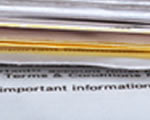 Go to main content
Go to main content
Archive Website of the UK government
Please note that this website has a UK government accesskeys system.
Main menu
Page menu
Money, tax and benefits

Personal Independence Payment

From April 2013 a new benefit, Personal Independence Payment, will replace Disability Living Allowance (DLA) for disabled people aged 16 to 64. Personal Independence Payment is a non-means tested, tax-free payment that you can spend as you choose. Find out more, including what happens if you're currently getting Disability Living Allowance.
Personal Independence Payment - what it is
Personal Independence Payment is for disabled people aged 16 to 64 (known as working age) when they first claim.
Your entitlement to Personal Independence Payment isn’t based on your disability, but the help you may need because of your condition or disability. Your personal circumstances are taken into account and the impact that your condition or disability has on your ability to live independently.
The payment isn't means-tested, so your income and savings won't affect your entitlement to Personal Independence Payment. You can claim it whether you're in or out of work.
The payment is tax-free and you can spend the money as you choose.
If you're currently getting Disability Living Allowance
Aged under 16
There's no change for Disability Living Allowance for children up to 16 years of age - this will continue.
Aged 16 to 64
From 2013 to 2016, Personal Independence Payment will replace Disability Living Allowance for everyone of working age even if you've an indefinite or lifetime award. Working age means anyone aged 16 to 64 on the day that Personal Independence Payment is introduced. You'll need to make a claim for Personal Independence Payment instead. The Department for Work and Pensions (DWP) will write to you between 2013 and 2016 to let you know when you can claim Personal Independence Payment.
You don't need to do anything now, DWP will contact you to let you know when your Disability Living Allowance will stop. They will tell you when and how you should make a claim for Personal Independence Payment.
There's no automatic entitlement to Personal Independence Payment. Entitlement is based on your personal circumstances and the impact that your condition or disability has on your ability to live independently. Entitlement will not depend on what health condition or disability you have.
The only exception is for people who are terminally ill and who are not expected to live for more than six months.
Aged 65 or over
If you're aged 65 or over on the day Personal Independence Payment is introduced, you'll keep getting your Disability Living Allowance. You will need to continue to meet the entitlement conditions. You'll not need to claim Personal Independence Payment.
Why is Personal Independence Payment replacing Disability Living Allowance?
Replacing Disability Living Allowance with Personal Independence Payment will mean everyone will get the right support to live independent lives. Personal Independence Payment will consider the impact of disability in a better way than Disability Living Allowance does, considering all conditions fairly.
This means that people with mental health, intellectual, cognitive and developmental impairments will be better assessed - along with people with physical disabilities. The impact of their conditions will also be taken into account in a fairer way.
The new benefit also allows disabled people to be reassessed over time to ensure everyone gets the right support if their needs change.
Further information
You can find general information on Personal Independence Payment on the DWP website.
You can download a frequently asked questions leaflet containing information about Personal Independence Payment.
In this section...
- Attendance Allowance
- Benefits if you are ill or disabled - changes you need to know about
- Constant Attendance Allowance
- Disability Living Allowance
- Disabled Facilities Grants
- Industrial Injuries Disablement Benefit (accidents)
- Industrial Injuries Disablement Benefit (diseases and deafness)
- Incapacity Benefit
- The Independent Living Fund
- Severe Disablement Allowance
- Vaccine Damage Payment
- War Disablement Pension
 Facebook
Facebook Twitter
Twitter StumbleUpon
StumbleUpon Delicious
Delicious Reddit
Reddit